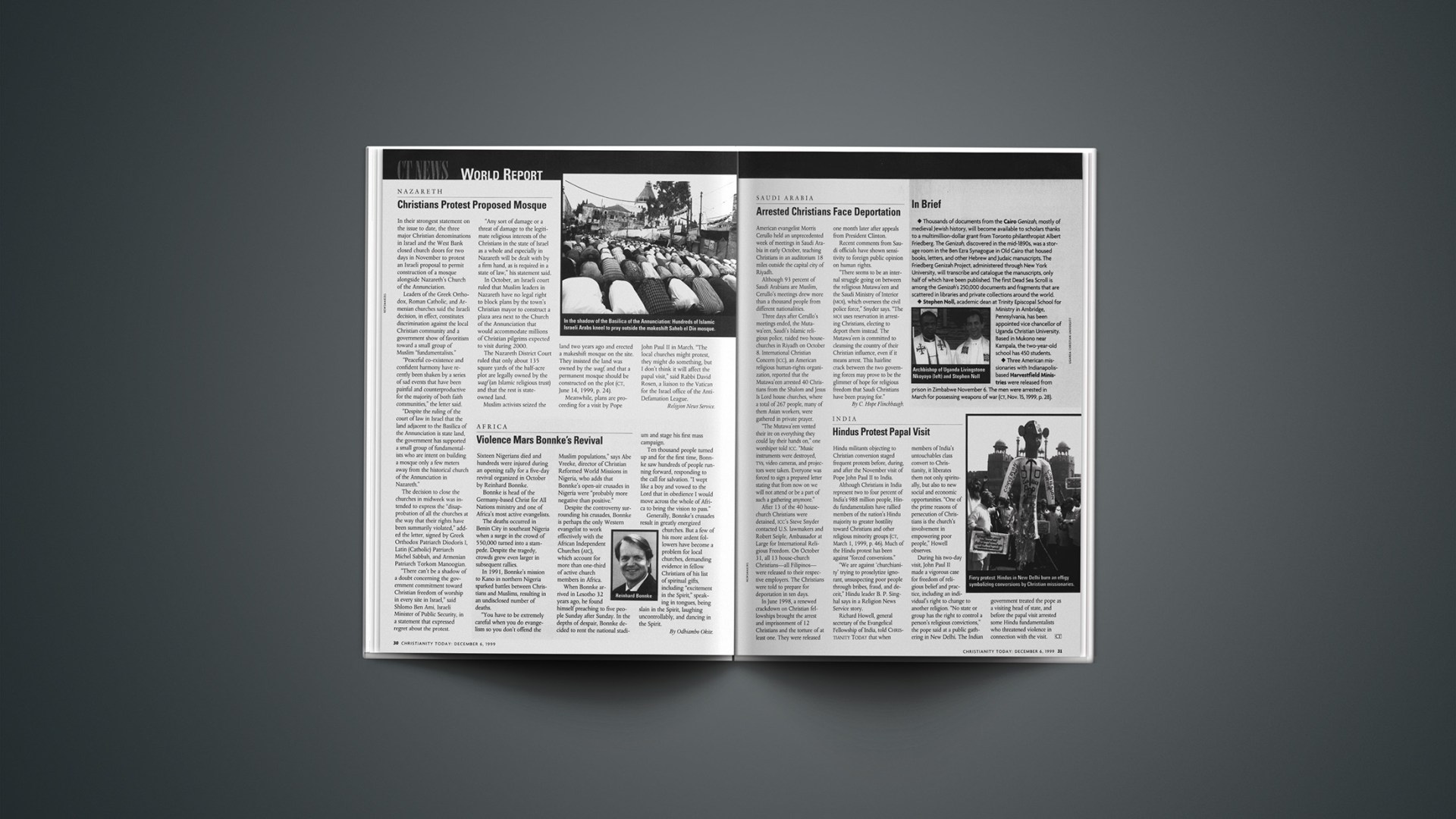American evangelist Morris Cerullo held an unprecedented week of meetings in Saudi Arabia in early October, teaching Christians in an auditorium 18 miles outside the capital city of Riyadh.
Although 93 percent of Saudi Arabians are Muslim, Cerullo’s meetings drew more than a thousand people from different nationalities.
Three days after Cerullo’s meetings ended, the Mutawa’een, Saudi’s Islamic religious police, raided two house- churches in Riyadh on October 8. International Christian Concern (ICC), an American religious human-rights organization, reported that the Mutawa’een arrested 40 Christians from the Shalom and Jesus Is Lord house churches, where a total of 267 people, many of them Asian workers, were gathered in private prayer.
“The Mutawa’een vented their ire on everything they could lay their hands on,” one worshiper told ICC. “Music instruments were destroyed, TVs, video cameras, and projectors were taken. Everyone was forced to sign a prepared letter stating that from now on we will not attend or be a part of such a gathering anymore.”
After 13 of the 40 house-church Christians were detained, ICC’s Steve Snyder contacted U.S. lawmakers and Robert Seiple, Ambassador at Large for International Religious Freedom. On October 31, all 13 house-church Christians—all Filipinos—were released to their respective employers. The Christians were told to prepare for deportation in ten days.
In June 1998, a renewed crackdown on Christian fellowships brought the arrest and imprisonment of 12 Christians and the torture of at least one. They were released one month later after appeals from President Clinton.
Recent comments from Saudi officials have shown sensitivity to foreign public opinion on human rights.
“There seems to be an internal struggle going on between the religious Mutawa’een and the Saudi Ministry of Interior (MOI), which oversees the civil police force,” Snyder says. “The MOI uses reservation in arresting Christians, electing to deport them instead. The Mutawa’een is committed to cleansing the country of their Christian influence, even if it means arrest. This hairline crack between the two governing forces may prove to be the glimmer of hope for religious freedom that Saudi Christians have been praying for.”
Copyright © 1999 Christianity Today. Click for reprint information.










